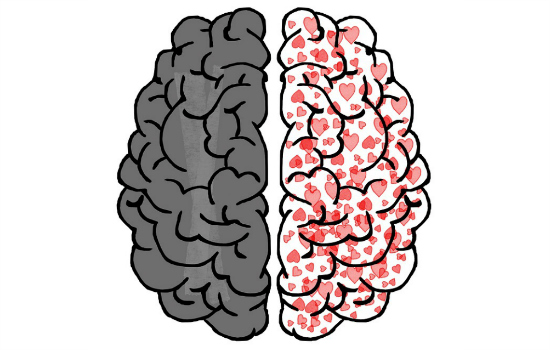
Do you ever wonder why, in spite of all your good intentions, you just cannot seem to take control over your whole health and wellness? The answer to that question can be found in the words of Albert Einstein, who reminds us "you cannot correct a problem with the same thinking that created it." In other words, you cannot change old behaviors and overcome old obstacles without new information.
The Institute of Medicine recently published a study indicating that ninety million Americans are "health illiterate," which means we do not know how to interpret or use health information to control or improve our health or prevent chronic disease. Data compiled previously identified "lack of information as the number one root cause of death." Understanding that there exists a cause and effect relationship between what we know and how we behave, we need a model of integrating this important information to change the behaviors that lead to chronic disease.
According to a seven-year, 1996 Harvard Medical School study, approximately 70% of all cancers are preventable through lifestyle changes. Furthermore, our diseases and conditions are primarily a result of stress, food, environment, attitude, emotions or beliefs that keep us in behaviors that lead to illness. Which invites the question, are we consciously choosing to be unhealthy, or do we just not understand sufficiently the relationship between what we think, how we behave, what we put into our bodies and how we keep ourselves well or make ourselves sick?
In a world exploding with health information, especially on the internet, we are caught in the dilemma of having abundant amounts of information, without a context through which we can understand and utilize this information in a way that is appropriate for our own unique personal health needs. There is, however, good news. Making its way into the mainstream of health care is an integrated model of health information and education that provides a "whole picture of health" perspective, allowing each of us to discern and create our own unique approach to taking charge of our health and well-being. Whole Health Education, developed over the past 28 years, in cooperation with Boston physicians, nurses and educators, is an approach to understanding the cause and effect our behaviors and choices have on our state of health. Demystifying the five major factors that influence how sick or well we become, Whole Health Education provides a perspective on human anatomy and physiology, bio-chemistry, psycho-social, environmental and spiritual aspects which allow for an authentic understanding of what we need to know to resolve chronic health problems or to stay healthy.
Integrating evidence-based information with the wisdom of various spiritual teachings and a whole-person overview of behavioral options, Whole Health Education offers each of us a tool for personal health management by providing personalized health information that explains the physical, emotional, nutritional, environmental and spiritual aspects of a health concern.
For example, Mature Onset Diabetes affects approximately 18.2 million Americans and is the leading health concern in our culture today. As all chronic conditions are, Mature Onset Diabetes is a multi-dimensional disease state; the unique Whole Health perspective can facilitate the restoration of health for those with chronic diseases such as diabetes.
Physical/Structural
What happens on a physical and structural level with Mature Onset Diabetes? The specialized beta cells of the pancreas, which produce insulin, become incapable of producing adequate amounts of the critically necessary secretion. This happens over a period of years and can begin in our bodies, over time, by eating large amounts of insulin-provoking foods. These insulin provocateurs, which are sugars and starches in the form of complex carbohydrates, require the pancreas to produce more insulin so that the sugars can be carried over the cell membranes to all parts of the body. Serious disturbances occur when we do not have enough insulin to carry the sugar over the cell membranes. Insulin hooks onto the sugar molecule and acts like a lock and key mechanism to bring that sugar into the cell, where it is then used in the energy cycle of cell metabolism. The nervous system, brain and the lungs cannot function without the proper metabolism of sugars.
Emotional/Social
Just as diabetes is a lack of nourishment on a chemical/nutritional level, so is it a lack of emotional nourishment on an emotional/mental level. It relates to the "feel good" nourishment component of your body. What do we know about carbohydrates and serotonin? Carbohydrates provoke the production of serotonin. Serotonin is a neuro-transmitter that produces a feeling of well-being. There is a direct relationship between what our body is doing chemically and how we feel emotionally. When we crave or build our diet around carbohydrates, this can be a way of "self-medicating" our emotional needs by eating carbohydrates to provoke insulin production.
Sugar problems can affect us emotionally. Let's say you have a pancreas that is not working properly. What can happen somatic-psychically from the pancreas to the brain? If we are feeling the ups and downs of hypoglycemia, and its biochemical/neurological symptoms, it may undermine our sense of security, self-esteem, and produce anxiety and fear.
What is the emotional component of diabetes and the pancreas? Often, it can be a poor sense of self-esteem and a fear of not being "good enough" or not belonging. These feelings, medicated by the serotonin foods, can lead us to not look deeply enough into what is causing our health concerns and allow the feeling/feeding cycle to continue.
Chemical/Nutritional
On the nutritional side, the treatment for people with Mature Onset Diabetes is to decrease the stress on the pancreas by making changes in their diet — decrease starches and sugars and decrease calories. Eat less, eat right. What kind of a diet would be best for preventing Mature Onset Diabetes? Vegetables, vegetables, and vegetables combined with lean proteins such as fish, chicken, water, a little fruit and a little fat. In a hypoglycemic situation, it is wise not to eat grain or sugar, but sprouted grain bread and other substitutes can be healthy and satisfying.
Because hormones are chemicals, diabetes and hypoglycemia are both hormonal-based problems. What we know about the hormone system is that it works as a balanced interdependent system. Diabetes is an endocrine-related, systemic problem. With a systemic problem like diabetes, you have a body system problem–you do not just have a condition by itself. It is known that the pancreas is related, through hormone interaction, to the adrenals, and the adrenals are in turn related to the reproductive system. It is known that these glands are related through hormone interactions to the pituitary and the pituitary is related to the thyroid gland, the thyroid is related to the thymus, and the thymus is related to the immune system.
Environmental/Internal & External
The environment that we work in, live in, walk through, and/or live near can have an impact on the way that we feel and the way we feel about ourselves. How do we learn to trust in the order of the universe? By behaviors that come from trusting the order inside ourselves. We do this by setting boundaries — codes of conduct of how we are going to behave, eat, work exercise and live. If we don't violate our own boundaries, we are less likely to let anybody else violate our boundaries. We have to start with ourselves. Our experience of victimization can begin with our own self-victimizing behavior.
Spiritual/World View
A Hindu Vendata truth is that "the whole world is one family." It is said that there is only one disease, the disease of separateness, separating oneself from the awareness that we are one living organism. Competition creates isolation. The spiritual challenge presented by hypoglycemia and diabetes appears to be involved with over- or under-valuing the self: judgment of self and then others. Where are we in the process of getting to the truth that we are all equally important? The drama created by a one-up or one-down dynamic that we may allow to be part of our experience can lead to psychophysiology and the behavioral issues which can contribute to and create Mature Onset Diabetes.
Expanding your knowledge of whole health can transform your experience of taking care of yourself. It can provide an understanding of our health concerns and conditions from this multi-dimensional perspective that makes sense in a way we can utilize the information directly and in a meaningful way. In addition, having the information provided in a mindful, respectful way that invites each of us to discern what we know about our health and condition, how to choose to resolve the problem and what kind of care we choose to have, allows each of us to experience whole-person health care through whole health information. Then, WE become the center of our health and healing process, rather than the doctors or practitioners we go to for guidance.
FREE Whole Health Consultations available.
888-354-4325 Take charge of your health!




